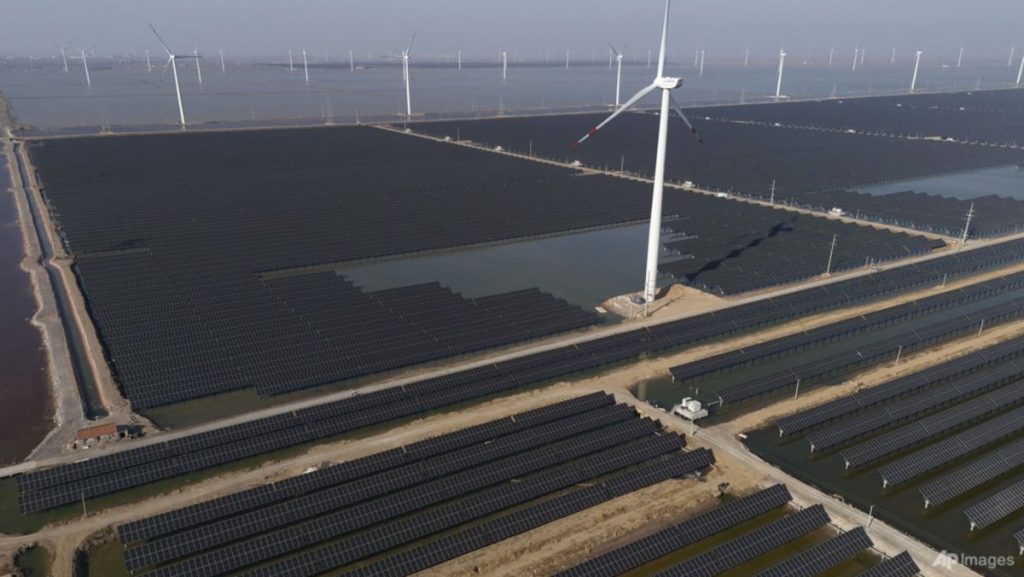The COP29 climate conference, held in Baku in November, witnessed significant strides in climate finance, with China emerging as a pivotal player in shaping the outcomes. The conference centered around the establishment of the New Collective Quantified Goal (NCQG), a crucial mechanism designed to address the financial needs of developing countries grappling with the impacts of climate change. China’s active engagement in negotiations facilitated the resolution of contentious issues surrounding the NCQG, ultimately leading to an agreement that, while not entirely satisfactory to all parties, represents a notable step forward in global climate action.
China’s influence manifested in several key areas. Firstly, the nation championed the importance of multilateral frameworks in addressing climate finance, emphasizing the collective responsibility of the international community. Simultaneously, China underscored the principle of common but differentiated responsibilities, advocating for developed nations to maintain their leading role in providing financial support to developing countries. This dual approach ensured that while the global community works collectively, historical responsibilities and current capacities are duly considered. This balanced perspective proved instrumental in bridging the divide between developed and developing nations, paving the way for a consensus on the NCQG.
The agreed-upon NCQG comprises two distinct components: an increase in “core” financing and an “additional layer” of funding. The core financing, conventionally set at US$100 billion annually, is slated to increase to at least US$300 billion annually by 2035. This significant boost aims to provide a more substantial and reliable stream of funding for essential climate adaptation and mitigation projects in developing countries. The “additional layer,” projected to reach up to US$1.3 trillion, primarily focuses on leveraging private sector investments. While this innovative approach aims to tap into vast pools of private capital, some developing nations expressed concern over the reliance on private finance, citing potential challenges in accessibility and accountability. Despite these reservations, the overall NCQG outcome, achieved with China’s active contribution, signifies a tangible progression in global climate finance commitments.
China’s groundbreaking willingness to include its South-South cooperation and multilateral development bank financing towards the new finance goal marked a crucial turning point. This decision demonstrates China’s commitment to playing a more substantial role in global climate finance, acknowledging that diverse sources of funding are essential for achieving the ambitious targets set by the Paris Agreement. Furthermore, this move sets a precedent for other nations to consider incorporating various funding streams into their climate finance contributions, potentially unlocking significant additional resources for climate action.
Adding further weight to its commitment, China publicly disclosed its climate finance contributions for the first time. Vice Premier Ding Xuexiang announced at COP29 that China had provided and mobilized 177 billion yuan (over US$24 billion) in support of climate action in the Global South since 2016. This transparency is crucial for building trust and accountability within the international climate finance landscape. It allows for a clearer understanding of the scale and scope of China’s contributions, facilitating better coordination and collaboration among nations. Moreover, this disclosure serves as a benchmark for future progress and encourages other significant players to follow suit, promoting a more open and accountable system of climate finance.
In summary, China’s multifaceted engagement at COP29 significantly influenced the trajectory of global climate finance. Its role in mediating negotiations, advocating for balanced responsibilities, and contributing substantially to the NCQG highlights its growing influence in international climate discussions. China’s willingness to include various funding streams in its contributions and its unprecedented transparency regarding its financial commitments signal a deeper commitment to global climate action. While challenges remain, particularly in addressing concerns about private finance and ensuring equitable distribution of resources, China’s proactive stance at COP29 provides a foundation for future progress, paving the way for more effective and collaborative efforts to combat climate change. The conference outcomes represent a crucial step towards a more robust and inclusive system of climate finance, with China playing a vital role in shaping this positive trajectory.

